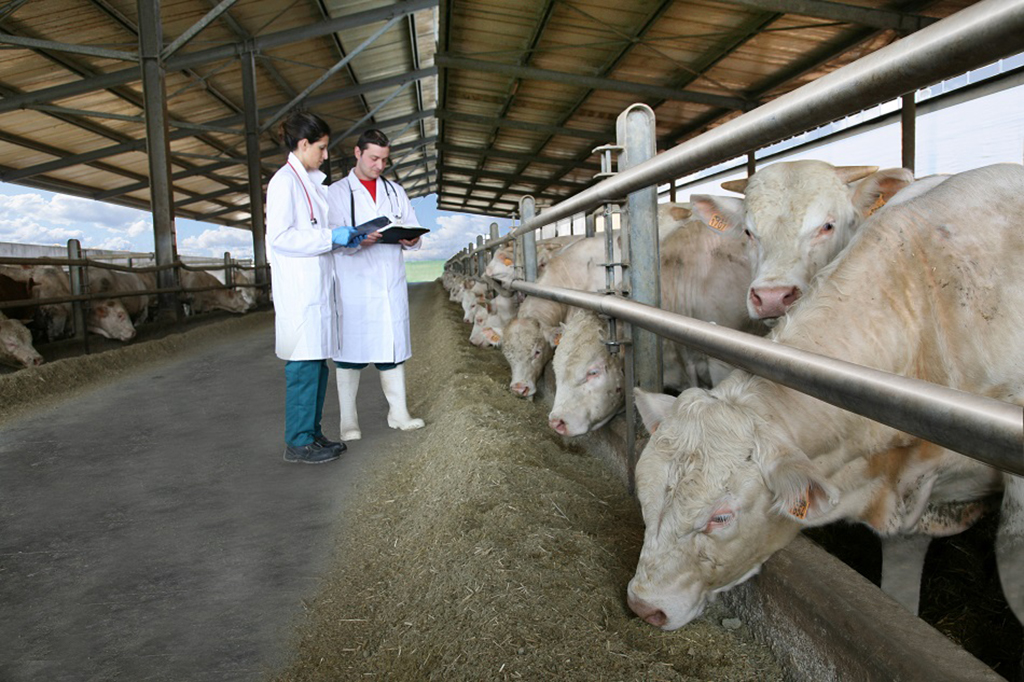The campaign in which CONAFE collaborates with other institutions in the livestock sector
redirectionAnimal health and welfare are cross-sectional research topics, supported by several core veterinary disciplines, such as epidemiology, virology, parasitology, bacteriology, and the scientific fields of ethology, preventive veterinary medicine, and animal physiology. The European Zoological Association (EAAP) organizes a monthly series of webinars to inform, update and disseminate the latest scientific literature through distinguished speakers for individual EAAP members. 17th EAAP Webinar “Promoting Animal Health and Welfare through Pathogen Control”, organized in collaboration with the EAAP Animal Health and Welfare Committee, aims to support scientific debate on issues related to the health and welfare of all types of livestock.
an offer Christian Ducrot From INRAE, in France, focusing on “animal health and welfare through pathogen control”, taking a multidisciplinary approach to animal health and farm animal welfare. The presentation began by explaining the traditional approach of livestock to improving animal health, which focuses on protecting animals from pathogens, which also protects human health. This approach includes biosecurity measures to avoid contact with infectious agents, vaccination and eradication schemes to control specific infectious diseases, and keeping animals indoors to control various infectious and parasitic environmental diseases. Pathogen control is one of the main prevention methods used by veterinarians to protect the health of animals on farms, as well as good environmental conditions and nutrition to contribute to resistance to infection and increase immunity, which reduces the need for antibiotics.
Today, some farmers tend to refuse antibiotic treatment to sick animals in order to maintain the “antibiotic-free” label. However, this can cause poor health of the animal and have a negative impact on the animal’s welfare, as in certain circumstances antibiotics are necessary for the animal’s health and welfare. For this reason, there is a strong demand from veterinarians and parts of the livestock sector for on-farm health and welfare monitoring tools and indicators that are better for tracking antimicrobial need and use. The same can apply to parasite control.
Good animal health is one of the elements that feed into the standard of general animal welfare. With this in mind, it is clear that any pain, suffering and loss of physical capabilities due to diseases will have an impact on the welfare of that animal, so we can assert that controlling pathogens leads to less disease and better health of the animal, and thus, better overall health. But there are also conflicting issues between fighting pathogens and well-being. As previously identified, the control of pathogens has a positive impact on animal and human health in the context of zoonotic diseases, and remains the primary means of controlling infectious diseases. However, most pathogen control methods reduce animals’ freedom to express their natural behavior, such as outdoor exploration and foraging. How can we balance its positive and negative effects?
There are different perceptions about the relationship between animal health and welfare. The main goal of veterinarians is to keep the animals healthy, while some farmers prioritize maintaining good health and ensuring the welfare of their animals. Of course, the view of citizens and consumers today has a huge impact on the future of how animals are raised. Systematic review General attitudes, perceptions and behaviors towards livestock diseases associated with the care of farm animals indicate that women, the younger generation and people with higher education are most concerned with welfare considerations. In addition, the measurement of normal behavior is another central component to determining animal welfare because it indicates an animal’s behaviors and living conditions, such as adequate space, freedom to act according to natural instincts, and access to the outside. The ability of farm animals to exhibit normal behaviors is so vital to their overall well-being that efforts to protect health are not supported at the expense of normal behaviour. Depending on stakeholders, pathogen control should not be favored at all costs. It is necessary to analyze the balance that may depend on pathogen severity, animal risk and critical aspects of control measures. Social concern tends to favor normal behavior over animal health and the need for justification, explanation, and communication to implement strong disease control measures.
fountain: Original article from European Livestock Voice
links

“Social media evangelist. Student. Reader. Troublemaker. Typical introvert.”


:quality(85)/cloudfront-us-east-1.images.arcpublishing.com/infobae/7TXNTX4Z6ZADNGBBYTUT45QETM.jpg)
:quality(85)/cloudfront-us-east-1.images.arcpublishing.com/infobae/TR43PX4FQRCGJOYTK6DVVHHXGE.jpg)


More Stories
National Academy of Medicine and PAHO present reports of the Colombia General Physician Competency Forum – PAHO/WHO
Academic excellence in medical sciences is recognized at Granma.
Medical simulation has revolutionized the training of doctors in the country.